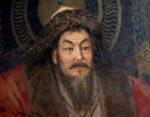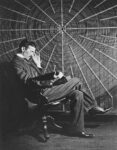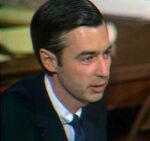His wit was legendary. His literary works showed signs of brilliance and his lifestyle made him, for a time, among the most celebrated artists of the age… Yet his spectacular fall was unprecedented, only equaled in modern times by the disaster that was O.J. Simpson. In this week’s Biographics, we delve into the outrageous life of (self proclaimed) genius Oscar Wilde.
Beginnings

Oscar Fingal O’Flahertie Wills Wilde entered the world on October 16th, 1854. The flamboyance of his name was a portent of things to come. His parents were socially prominent Anglo-Irish Protestants, each with eclectic interests, a belief in national politics, and publishing careers of their own.
Oscar’s father, William, was a renowned physician specializing in the eye and ear. He was a slight, unkempt figure with an ugly beard and a roving eye. But that did not stop him carrying on numerous affairs throughout his marriage, and he fathered several illegitimate children.
In contrast to her husband, Oscar’s mother, Jane, was especially elegant and statuesque. Almost six feet tall, she towered over her husband. She was a woman who ‘longed to make a sensation,’ once stating that ‘I should like to rage through life – this orthodox creeping is too tame for me.’ And, well, you probably guessed that this was an attitude that her son would quickly embrace…
When Oscar, her second son, was eight months old, Jane described him as ‘a great stout creature who minds nothing but growing fat.’ Jane had wanted a girl and is said to have dressed and treated Oscar as a daughter for the first decade of his life.
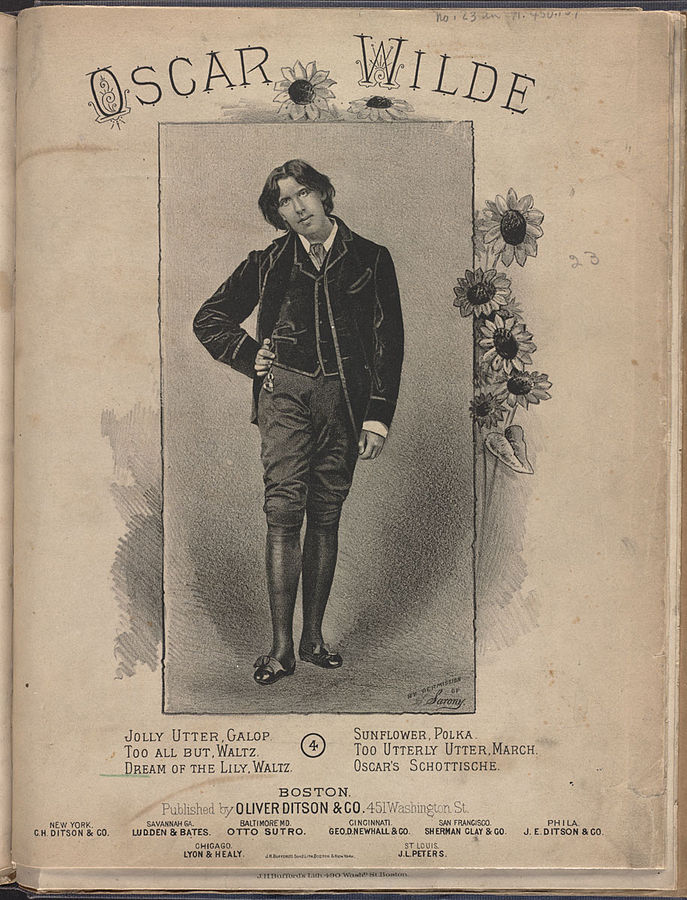
At age nine, Oscar, along with his older brother Willie, was sent to his first school – the Portora Royal Boarding School, in Enniskillen, far in the Protestant north of Ireland. Oscar was younger than most of his peers. At first, he was eclipsed by his older brother, but by the time that Willie was set to leave Portora, he had been superseded academically by Oscar. In fact, the younger Wilde was intellectually far ahead of his classmates. In 1889 he recalled . . .
“I was looked upon as a prodigy by my associates because, quite frequently, I would, for a wager, read a three-volume novel in half an hour so closely as to be able to give an accurate resume of the plot of the story; by one hour’s reading I was enabled to give a fair narrative of the incidental scenes and the most pertinent dialogue.”
Higher Education
In 1871, Wilde won a scholarship to study Classics at Trinity College, Dublin. He arrived there in 1873, aged 18. There he was tutored and befriended by Reverend John Pentland Mahaffy, Professor of Ancient History. Mahaffy inspired his pupil to be proficient in Greek and, in 1875, he won the prestigious Berkeley Gold Medal in Greek.

Three years later, in 1874, Oscar sailed to England to take the examination for a Classics scholarship at Oxford University. While awaiting the results, he went to London and was dazzled by his first taste of the metropolis. After that he headed off to another metropolis… Paris. It was there, with his mother and brother, that he received news that he had won his scholarship. He’d not only won it, but he’d achieved the highest mark of the entire group…
Oscar made the most of his time at Oxford. It was during this time that he cultivated his aesthetic sensibilities, filling his room with lilies and spending vast portions of his father’s money upgrading the decor in his room. It was at this time that he famously said, ‘I find it harder and harder every day to live up to my blue china.’
“I have nothing to declare but my genius.” Oscar Wilde
Wilde was never a fan of sport, but he enjoyed watching others play cricket and run. He developed a reputation for his wit, proclaiming that ‘the only possible exercise is to talk, not to walk.’ Still he was no pushover. It is believed that once, while in his room, four undergraduates pounced on him to beat him up and smash his belongings. Wilde is said to have kicked out the first interloper, punched the second as he doubled over, hurled the third through the air, and carried the last back to his own room and tossing him on the floor.
It was during his time at Oxford that Wilde became a Mason… He adopted the costume – velvet breeches, tailcoat, white tie and silk hose. But his extravagant lifestyle was dented in April 1876 when his father died, leaving a serious debt behind. Oscar though, he still managed to find a way to indulge himself with semester holidays around Europe…

Just prior to graduation in 1878, he consoled his mother, distraught with financial worry that ‘we have genius – that is something attorney’s can’t take away.’
Oscar emerged with a degree from Oxford, and a clear vision of what was in store. In a remarkably prophetic couple of sentences he declared, ‘God knows, I won’t be a dried up Oxford don, anyhow. I cannot live without desire, fear and pain . . . self-poised, self centered and self comforted. I’ll be a poet, a writer, a dramatist. Somehow, or other, I’ll be famous, and if not famous, notorious.’
In December 1878, Wilde moved to London. He shared a flat with Frank Miles, a fellow Oxford graduate. During this time, he was introduced to many writers, artists and actors. He soon gained a reputation for his wit, and became a favored dinner guest, where he would espouse his aesthetic values.
He applied for various fellowships and even tried to become an inspector of schools. Meanwhile he was working on his first play, Vera, which was privately printed in 1880. Vera was a story of noble socialism set in 19th Century Russia. But, unfortunately for Wilde, the London And New York producers who Wilde sent the play to turned it down.
Literary Beginnings
In 1881, Oscar published sixty-one pieces of writing under the title Poems. An initial run of 750 copies sold out, with two further printings being required. Meanwhile, a play by the renowned team of Gilbert and Sullivan was, indirectly making Wilde famous. It was called Patience and was a lampoon of the aesthetic culture that Wilde epitomized. The main character was clearly modeled on him. By June of 1881, Wilde’s status was such that the Prince of Wales commented, ‘I do not know Mr. Wilde, and not to know Mr. Wilde is not to be known.’

Despite his ever growing reputation, Wilde found himself in tough financial straits. He was offered, and accepted, a series of lecture tours around America to coincide with the New York opening of Patience. He set sail on Christmas Eve 1881 to instruct the New World in ‘The English Art of Renaissance.’
On arrival, he told a New York customs officer, ‘I have nothing to declare but my genius.’ Don’t try this today anyone… Well, the Americans were fascinated by him and the original schedule would be extended repeatedly in response to public demand. It would last almost a year, and even extended to Canada.
Financially, he did very well out of the lecture tour. He stayed in New York for two months after the tour’s end. He then briefly returned to London in January 1883, before relocating to Paris, where he immersed himself in artistic circles. He now made himself over physically. He had his flowing locks transformed into a bowl haircut and took to wearing a black overcoat… This was in great contrast to the flamboyant colors that he was known for.

In May, 1883, Wilde returned to London, apparently motivated by his interest in a woman named Constance Lloyd, the daughter of a prosperous London lawyer. For the last few years, despite his American earnings, Oscar had had money worries. The right marriage might solve them, while also answering growing gossip about his sexual character.
A year-long courtship followed, with the marriage taking place on 29th May, 1884. They honeymooned in Paris and then, thanks to his new father-in-law’s money, occupied a four-story house in London. He then went ahead and had the place redecorated at huge expense, which plunged the newlyweds into immediate debt.
Wilde’s first child, Cyril, was born on June 5th, 1885 with Vyvyan following on November 5th, 1886. With his writing career going nowhere, he agreed to a British lecture tour with topics such as ‘The Value of Art in Modern Life.’ Lecturing and other invitations kept him away from the family home. During his long absences he began to surround himself with young men, writing unguarded of his infatuation with the beauty of the male form. He formed an especially close friendship with a seventeen-year-old named Robbie Ross…
Success & Scandal
During the late 1880’s, while bringing in money with occasional book reviews, Wilde worked on his first novel, The Picture of Dorian Gray. When the book was published in a magazine in 1890 it caused an immediate scandal. The story line involved a subtly eroticized triangle of relationships between three men and was condemned by many as being immoral. Wilde had predicted such an outcome, having written the following in the preface
“There is no such thing as a moral or an immoral book. Books are well written or badly written. That is all.”
It was around this time that Wilde was introduced to a blond fair skinned undergraduate by the name of Lord Alfred Douglas, but who was known to his intimates as Bosie. Oscar quickly became obsessed with the twenty-two-year old…

From this time on, Oscar saw Constance and his children less often. He did his writings from rented addresses or hotels, usually with Bosie in tow….
Bosie’s father was the Marquis of Queensbury, the man who developed the rules of professional boxing. He took an immediate and intense exception to the relationship between his son and the famous Wilde. Apart from the homosexual aspect of their relationship, Queensbury was enraged that Wilde was distracting his son from his studies at Oxford. When Bosie quit his studies in May, 1893, the Marquis became determined to bring down Wilde
It was around this time that Wilde finally achieved success on the stage. A Woman of No Importance opened on April 19th, 1893 to widespread acclaim. During its long run, it brought him between 170 and 200 pounds per week. His next play, the satire An Ideal Husband, was also successful, providing the means for Oscar and Bosie to travel widely and live extravagantly.
The Marquis of Queensbury thought his son’s failure to take his degree in Oxford was a scandalous waste of time. He placed the blame squarely at the feet of Wilde, referring to the relationship as the ‘most loathsome and disgusting’.
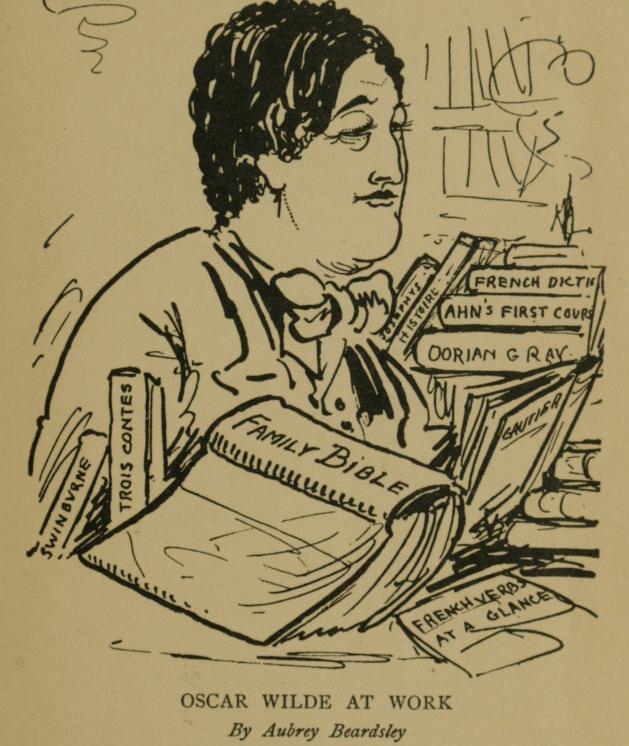
Queensbury began hounding the pair incessantly. He threatened to disinherit Boise. To this the son replied in a telegram, ‘What a funny little man you are!’
Queensbury didn’t like this one bit, and on the 19th of June, Queensbury burst in on Wilde at his Tithe Street address in London. He had a bodyguard with him and proceeded to threaten bodily harm unless the relationship was immediately ended. And what was Bosie reaction to all this? Well, he wrote nonchalantly to his father, ‘I write to inform you that I treat your absurd threats with absolute indifference.’
The encounter though, it unsettled Wilde, who got out of London for several months, going on holiday with his family to Worthing. This is where he worked on his latest play, The Importance of Being Earnest. But it wasn’t long before Bosie, unable to stay away, invited himself along… As you might imagine this caused a certain degree of tension between Mr. and Mrs. Wilde.

Trials
The Importance of Being Earnest opened to great applause on February 14th, 1895.
Two weeks later it was already a ‘wild’ success… In true Oscar Wilde style is began basking in the glow of this, Wilde called in at the lavish Albemarle Club… There he was handed a card from Queensbury by a porter. On this card was scrawled, ‘To Oscar Wilde, posing sodomite.’
At Bosie’s urging, Wilde went to Marlborough Street police station to ask for a warrant for Queensbury’s arrest on grounds of libel. The case came to trial on April 3rd. Prosecuting Counsel, Edward Carson put on the stand a sixteen-year-old ‘rent boy’ who claimed to have been paid for sex by Wilde. Carson then went on to dissect Wilde’s published works, revealing their supposed homosexual undertones…
And how did Wilde react to this serious event? Well, he chose to wield his celebrated wit as his main defensive tool… He was often funny, but the implicit superiority in his position was also damaging. In one exchange, when Carson asked whether the affection and love that is portrayed in The Picture of Dorian Gray might lead an ordinary individual to believe it had a sodomitical tendency, Oscar replied, ‘I have no knowledge of the ordinary individual.’ Not exactly endearing himself to anyone…
“I can resist everything except temptation.”
Wilde’s counsel, Edward Clarke, made serious miscalculations that did his client no favors. He went over letters that Queensberry had sent to his son in an attempt to show how crazed the father had become… To the jury, though, Queensbury’s volatility was driven by a paternal regard for Bosie’s character. As Carson put it, his client had one hope alone, and that was simply saving his son.
On the third day of proceedings, with things going not exactly brilliantly… Wilde chose not to attend. This was to prove the most damaging day yet, with Carson announcing that he intended to introduce a number of boys who would testify to ‘shocking acts’ performed by Oscar…
Without consulting with his client, Wild’s lawyer, Clarke, offered to abandon the case. The defense, however, insisted that the original plea stand. The judge agreed and compelled an acquittal from the jury.
Queensbury was found not guilty of libel against Wilde. It had now been proven that his written accusation of sodomy was not libelous. Now this had another important consequence… It Wilde highly vulnerable to arrest for sodomy, which was a crime in England at the time.
And, well this happened…
At five in the evening of the day that the libel case was decided, a summons was issued for the arrest of Oscar Wilde. The charge was ‘committing acts of gross indecency.’ Hiding in the Cadogan Hotel, Oscar was urged by Bosie and others to take a boat immediately for France… Even his wife told him to run.

However this just didn’t sit right with Wilde. He was determined to stand his ground, declaring, ‘I shall stay and do my sentence, whatever it is.’ At 6:10 pm, two detectives arrived, and took a semi-drunk Wilde to Bow Street station.
The arrest of Oscar Wilde caused an absolute sensation. Any friends that he still had quickly drifted away. Both of his currently running plays were cancelled and his name very quickly became toxic.
Wilde was kept in a cell in Bow Street (then in Holloway Prison). Queensbury now administered the low blow of forcing a bankruptcy sale of Oscar’s belongings, helped by a long list of angry creditors. By this time, Wilde was about £6000 in debt. After making sure that Oscar had nothing of any physical value left, Queensbury wrote to a newspaper denying that he was capable of any sympathy for Wilde. He stated ‘I have helped to cut up and destroy sharks. I have no sympathy for them, but may have felt sorry, and wished to put them out of pain as fast as possible.’
The trial ran from the 26th to the 29th of April. It was extraordinarily explicit in its allusions to sexual acts, many coming from the young men who claimed to have been partakers. Various Savoy Hotel employees testified that they had seen boys in Wilde’s bed. However, Oscar’s counsel was able to point out contradictions in the testimonies, especially those of the ‘rent boys.’
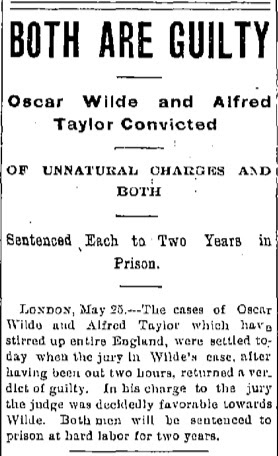
This all meant that the jury were unable to reach a verdict. But Wilde was not out of the woods, as an almost immediate retrial began. Between the two trials, he managed to secure bail, though stiff conditions were imposed… He tried to stay at a number of hotels, only to be told at each that he was unwelcome. He finally managed to find lodgings with his brother Willie.
The second trial began on May 22nd at the Old Bailey. This time, after two hours of discussion, the jury returned with a verdict of guilty. The sentence? Two years hard labor.
Confinement
Wilde was taken to Pentonville Prison. The wooden bed in his cell had sheets and rugs but no mattress. A tin pot was provided for his toilet. The prison clothes were not exactly his accustomed style of dress… Wilde was compelled to walk a treadmill senselessly for six hours each day, and allowed to exercise outdoors for one hour. He was also forced to make postal bags. For three whole months he had no outside contact, and after that things were not much better, with him only being allowed to write one letter.
The regime was brutal…Wilde recalling three punishments authorized by law – hunger, insomnia and illness. In September 1895, he received a visit from Constance who found the experience ‘awful, more so than any conception of it could be.’

Constance reported that Wilde professed a rejection of his former conduct, and begged her forgiveness for his madness during the last three years. She decided to stand by her ‘weak rather than wicked’ spouse. Still, she abandoned his name, referring to herself as Constance Holland.
When Bosie heard about Oscar’s rejection of his former lifestyle he was heartbroken. He wrote, ‘I am not in prison but I think I suffer as much as Oscar and in fact more.’
That was probably not the case though… I mean, prison was pretty rough. In October, he actually came down with dysentery. On 21st November, he was transferred to Reading Prison. At Clapham Junction station, he was spat on and ridiculed by the crowds. Here though conditions were improved and his duties were lighter. He was released on May 19th, 1896.
Oscar was booked into the Hotel Sandwich in Dieppe, Northern France, living off the generosity of the few friends who had stood by him. By now, Constance had decided on divorce and, suffering herself with spinal paralysis, put off any reunion. Between June and July 1897 Oscar wrote his last major work, The Ballad of Reading Goal. The subject? Well that would be underlining the need for reform in Britain’s prison and justice systems…
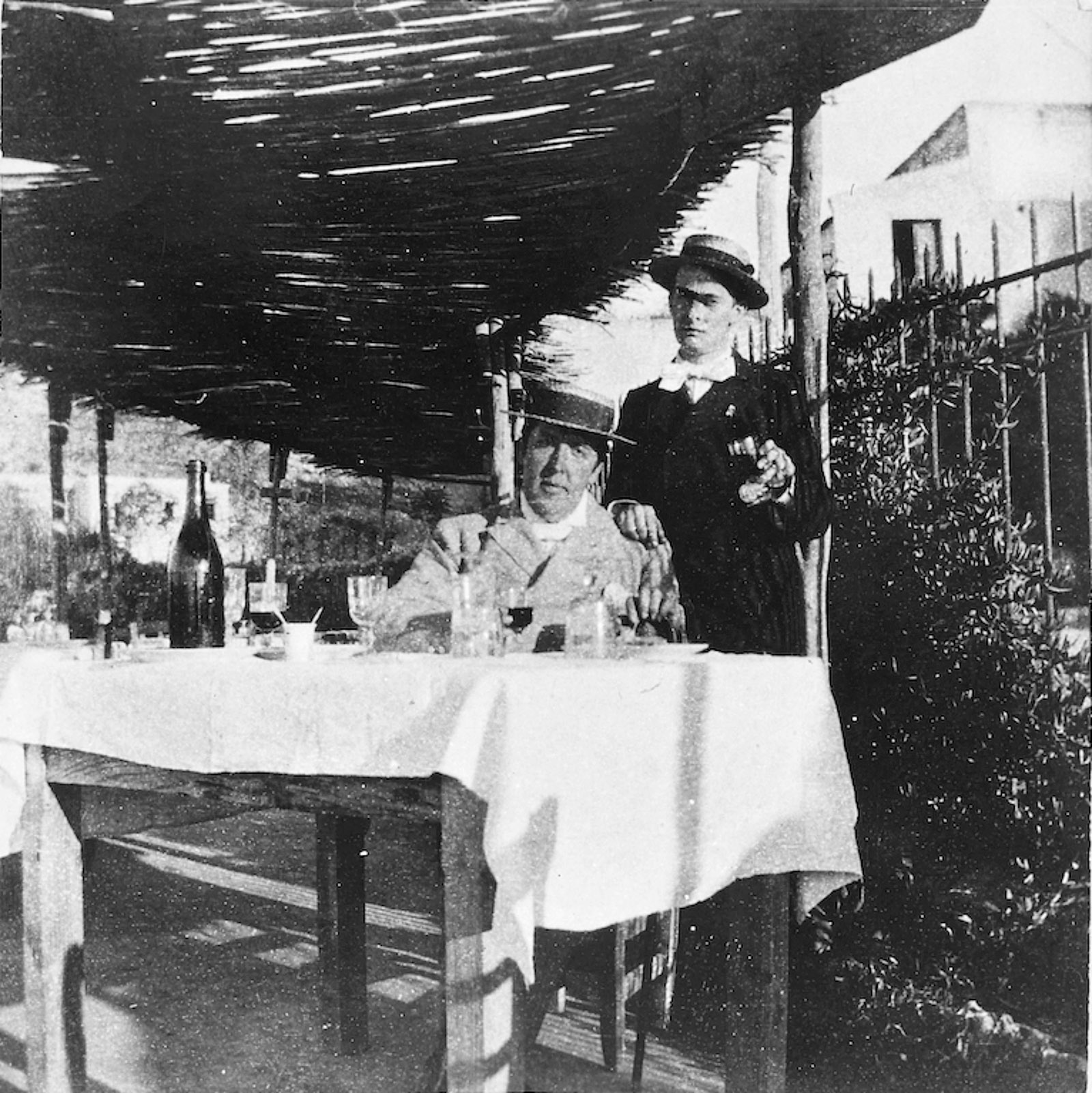
Life in Dieppe was excruciatingly lonely for Oscar. Society at large shunned him and he spent day after day alone and miserable. Finally, his resolve collapsed and he wrote to Bosie, inviting him to come and stay. They reconciled on August 28th, with Wilde bursting into tears at the sight of his ‘one true love.’
When Constance heard of her husband’s behavior she wrote to him forbidding any return ‘to your filthy, insane life.’ When he refused to give up Bosie, she cut him off completely…
Once the initial passion subsided, it became clear that both Wilde and Bosie were very different than their pre-trial selves. Bosie felt a duty to help Wilde, but this was no longer tied to love. On December 3rd, Bosie left for Naples, and did not return.

Oscar’s last two years – mostly in Paris – where pitiful. He drank, hired men, and begged. Acquaintances were few. Constance Holland sadly died age forty after an operation on her back on April, 7th, 1898. Then, in April, 1900 Wilde went with an acquaintance named Harold Mellor to Rome, where he received the Pope’s blessing. A month later he was in Paris and suffering from ill-health, which he attributed to food poisoning. His skin was irritable, frequently coming out in rashes. By September, he was completely bedridden. On October 10th, he was operated upon for an ear infection. The operation did not go well and he got worse. Still he insisted on drinking absinthe and champagne.
“There is only one thing in the world worse than being talked about, and that is not being talked about.”
On November 25th a diagnosis of acute, inoperable cerebral meningitis was reached. From here on, Oscar drifted in and out of consciousness and even sanity. At half past five the following morning, a death rattle began. Minutes after his demise, his body actually sort-of exploded, fluid pouring out of several orifices.
Oscar Wilde died as he had lived – inappropriately, outrageously and with scant reference to what decorum demanded.

